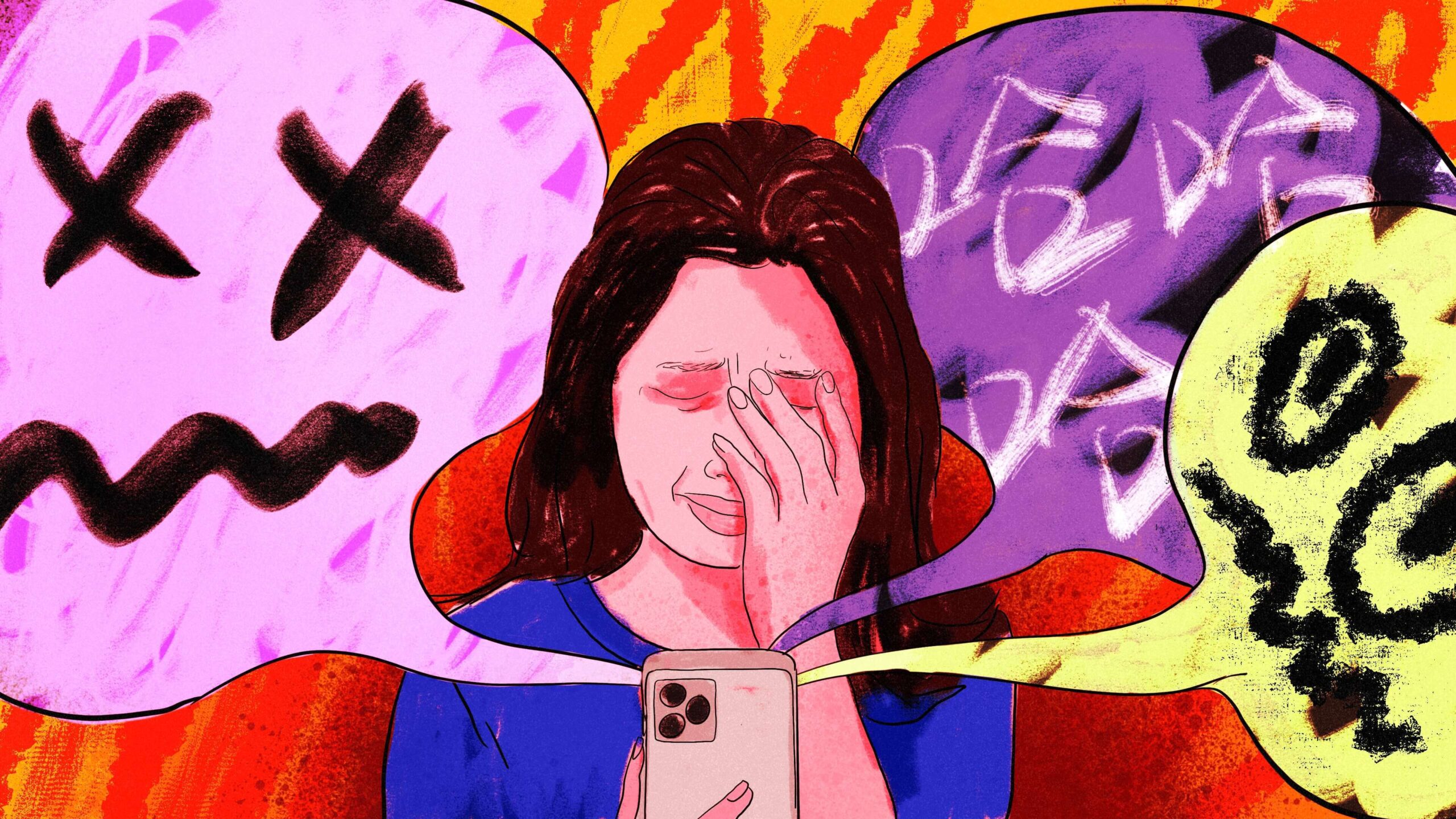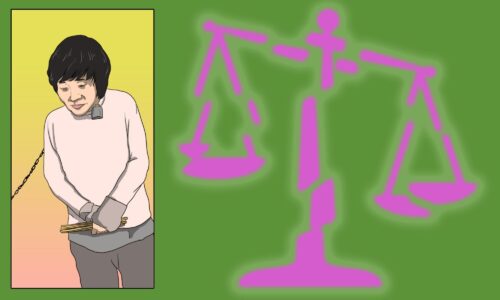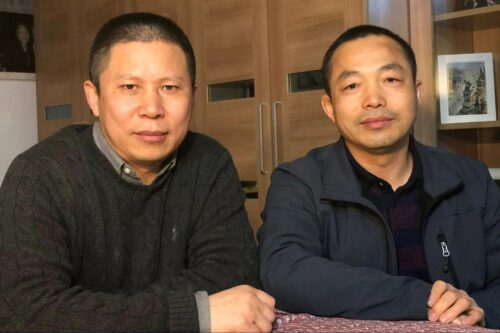Cyberbullying trial tests China’s determination to fight online abuse
Is China serious about reining in cyberbullying? A court case may tell.

In a key test of China’s resolve to combat online harassment and abuse, a court in Beijing has started hearing a landmark case involving a Chinese teenager who died by suicide after receiving a barrage of hateful messages on social media.
The lawsuit was filed by the grandparents of Liú Xuézhōu 刘学州, who took his own life in 2022 while studying at a Chinese university.
Liu, then 17, was thrust into the spotlight in 2021 after launching an online campaign to find his birth parents following the death of his adoptive parents. However, after a social media search reunited him with his biological family, Liu’s homecoming story took a dark turn as a firestorm of cruel comments criticized the teenager for scheming to take advantage of his birth parents. Liu eventually decided to take an overdose of antidepressants.
At the time, Liu’s death triggered a groundswell of grief and shock nationwide. Many internet users demanded justice for the teenager, and their calls also raised awareness of the dangers of cyberbullying.
Although the factors that contribute to suicide are complex, the suit brought by Liu’s grandparents accused two internet users with sizable followings on Weibo — who went by the handles “Truth Brother” (zhēnhuà gē 真话哥) and “Heartwarming Sister” (nuǎnxīn jiějiě 暖心姐姐) — of having a particularly harmful influence on the public opinion about Liu by spreading misinformation about him.
Zhōu Zhàochéng 周兆成, the lawyer representing Liu, presented 42 pieces of evidence during Monday’s hearing at the Beijing Internet Court, and argued that the defendants’ online behavior had constituted an infringement of Liu’s personality rights under the Civil Code.
“The evidence should also make it clear that Liu was an excellent student and a virtuous young person. He was full of expectations for life and had no reason to end his life before being a victim of cyberbullying,” Zhou told a news outlet, adding that in preparation of the complaint, his team combed through over 2,000 “horrifying” messages sent to Liu, many of which attacked his appearance, questioned his integrity, or explicitly told him to kill himself.
According to Zhou, the defendants “expressed regret” at the court, but denied any violations of law. A verdict is scheduled to be delivered at a later date.
It’s unclear whether Liu’s grandparents have any specific demands for punishment, but they said if the ruling involves financial compensation, they would donate it to charitable organizations on behalf of Liu.
China’s Civil Code, which came into effect in 2021, stipulates that in cases where a violation of personality rights is determined, the perpetrator bears “civil responsibility, such as for eliminating impact, restoring reputation, or making formal apologies,” and that the penalty should be “proportionate to the specific methods of the violation and the scope of impact it caused.”
A twice-abandoned teen
Online trolling has been around for as long as the internet has existed, but a report, released last year by the Communication University of China, showed that while vitriolic comments in the early days of Chinese social media were mostly directed at influential figures over ethical issues, more and more ordinary internet users are now finding themselves attracting the attention of bullies.
In the past few years, a string of deaths related to online bullying have brought the issue to the forefront of public consciousness. But what’s unique — and particularly disturbing — about Liu’s case is how it played out in the bright glare of social media, with millions of people bearing witness to his rapid deterioration of mental health over the course of just a few months.
The story of Liu, who was orphaned at the age of four when his adoptive parents died in an accident, first came to national attention when he posted a video in December 2021 soliciting help to find his biological family. In the clip, he claimed that three months after he was born in Hebei Province, his birth parents sold him for $4,200 to a middleman, who later found him a home with another family.
However, after his adoptive parents died in a fireworks accident when he was four, Liu said he had been mostly raised by his adoptive grandparents and had moved around a lot, staying with different relatives.
As Liu’s quest gained traction online, police from his home region decided to get involved and successfully tracked down his birth parents through DNA testing. The reunion was amicable at first, but things took a turn in January when Liu’s biological parents, who had since divorced and remarried, reportedly denied that they sold Liu when he was a baby and refused to offer him financial assistance.
In the following weeks, a slew of media interviews with Liu’s birth parents came out, which unleashed a torrent of hate and vitriol toward Liu, with outraged critics calling him “a scheming liar” and “a wolf in sheep’s clothing,” among many other negative labels. Then, on January 24, Liu ended his life, leaving behind a lengthy suicide note on Weibo, in which he addressed criticism and revealed that he was bullied and molested in school. “Wish there were fewer dark and malicious people in this world,” he wrote. “I have suffered enough.”
Better laws
On the same day that the first court hearing of Liu’s case was held, China’s top three legal bodies — the Supreme People’s Court, the Supreme People’s Procuratorate, and the Ministry of Public Security — released a set of guidelines on cyberbullying.
According to the document, instances of cyber violence that should result in “severe penalties” include bullying against minors and the disabled, organizing troll armies, fabricating sex-related rumors to infringe on others’ dignity, and using deep-fake technology for inappropriate purposes.
It also suggest that law enforcement bodies should consider criminal charges when online insults and defamation are considered to be “seriously endangering the social order,” such as in cases where the victim suffers mental distress or commits suicide. Under China’s criminal law, offenders convicted of such charges can be jailed for up to three years and be deprived of political rights.
However, like most rules designed by Chinese law enforcement to regulate what people can say and post, the news guidelines risk being used as a tool for censorship. “The offenses involved can be controversial, as many target online speech and are easily abused to retaliate against those spreading ‘disruptive or undesirable’ content,” Jeremy Daum, a senior fellow of the Yale Law School’s Paul Tsai China Center and the founder of China Law Translate, pointed out on X, formerly known as Twitter. “The line between actionable defamation and legitimate speech can be hard to find.”
In addition to legal efforts to combat cyberbullying, Chinese authorities have increased pressure on social media sites to do better in protecting their users. For example, in a campaign launched last year, China’s internet watchdog ordered 18 major online platforms — including Weibo and TikTok’s Chinese sibling Douyin — to create anti-cyberbullying mechanisms that allow them to identify harmful comments and intervene in a timely way.







